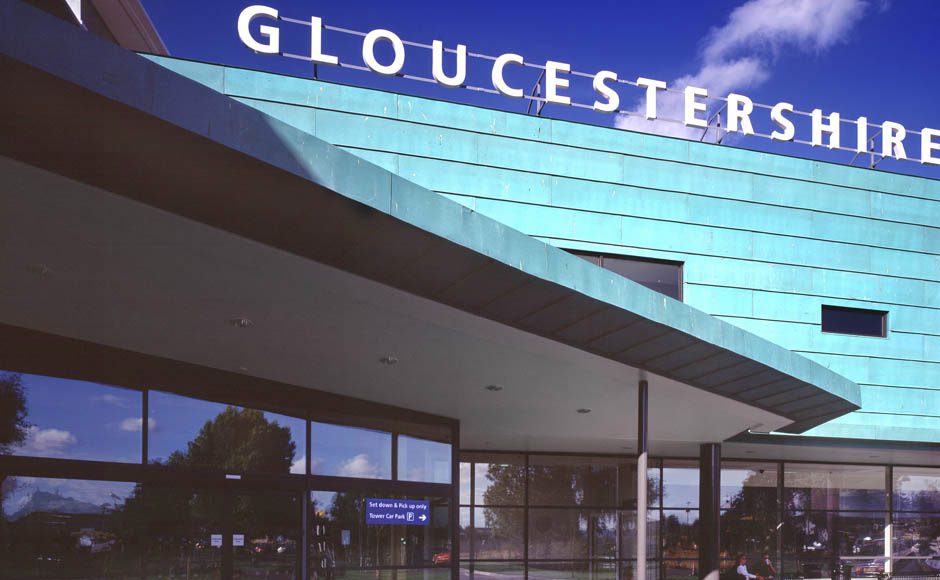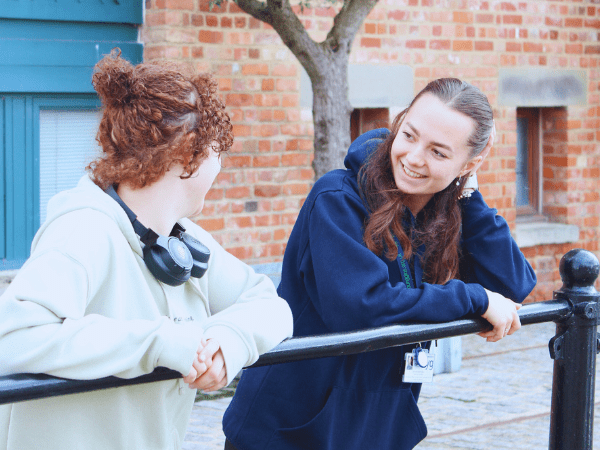
The Role of Youth Work in Mental Health Services.
Over the past five years Young Gloucestershire’s services have evolved to meet a growing need amongst young people to support their mental health. Therapeutic Services Senior Manager Ione Sime talks to us about the role of Youth Work in mental health services.
“When I started out with YG close to ten years ago, we were probably coming towards the end of delivering in more traditional youth club settings. Although we very much still offer group work now, there has been a significant shift towards one-to-one support and in particular support that reflects young people’s mental health needs.
“Why? Quite simply because this is what young people have been telling us they need. Certainly, over the last five years young people using our services have been presenting with greater levels of mental health concerns; depression, anxiety, low confidence being some of these. All of which provide barriers to engaging in our group services and other statutory based services. There are so many reasons why we hear more now about young people’s mental health than ever. It’s never as simple as one specific cause, but young people often pin-point Covid as a trigger for the demise in their mental health along with increased use of social media with experiences of bullying or low self-image. Alongside all of the existing pressures associated with adolescence I think there’s a recognition that the past five years has been tough for young people. From a professional view it makes sense, isolation coupled with connection only through a device. We know that human contact, friends, nature, activity all help with good mental health and for the last five years young people haven’t been engaged in these things.
“At Young Gloucestershire we recognise that Youth Work is about empowerment and voluntary engagement and these themes are key in our work to support young people with their mental health. Our experience shows that mental health and wellbeing can be improved by having a positive relationship that is built on the young persons terms, focusing on the young person as an individual rather than thinking of them as a diagnosis that needs to be cured or a behaviour that needs to be fixed.
“Young people tell us that frontline clinical services can often feel impersonal and have a lack of flexibility that makes it hard for young people to engage. At YG we have the freedom to offer a more flexible approach that can meet young people where they are comfortable. For instance, if a young person is struggling to leave the house, it is unlikely they will be able to attend a GP appointment, where they may be given medication or sign posted to another service to book another appointment. We can meet young people in their places and spaces, in communities, at schools or anywhere they feel comfortable and safe. We will be present with them while they talk about themselves and explore who they are and what they want to achieve. We will hand hold them through a process of regaining their confidence and inform them about their options for mental health support if it is something they want to explore.
“Youth work allows us to take a much more personal approach that listens to the young person and explores their ambitions and then supports them to achieve them. Not all young people identify their mental health as being their biggest challenge when they come to us. They may simply feel that they don’t get on with their parents or they are being bullied at school. However, we can see on the referral form that their teacher says they are anxious, or they have past trauma. We don’t tackle that head on but instead we listen to the young person and focus on working with them to develop tools that will help them take steps forward. A lot of mental health interventions for young people focus just on mental health – and rightly so. As youth workers we can look at the practical elements of the young person’s life that affect their mental health, like family, housing, relationships, education and individual circumstances. Then we can support the young person to make positive changes, which in turn affects their mental health positively. We don’t look at just their mental health, we look at everything that surrounds it and look at how we can move forward positively in all those areas.
“Sessions therefore are unique to each young person. One day a member of the team might accompany a young person on a ‘walk and talk’ or support them in some meditation or help them to make a ‘self-sooth box’. They equally might be helping them to look for work experience or attend an open day at college or catch a bus. Not all our work has a direct focus on mental health but everything we do will help to improve mental health. Much of our work will also better prepare young people when they do feel ready to unpack their experiences in counselling – which can be a hard thing to do, but they will be armed with tools to help them cope.
“We have seen how our youth work approach can also work alongside clinical and statutory support, offering an additional layer of support that focuses on the positive and on the future for the young person. We are also able to support clinical services to understand more about the individual and what makes them tick. We have a variety of collaborative projects which allow young people access to both youth work and counselling/NHS support, recognising that both are key in ensuring positive mental health outcomes for young people. Currently the charity is focusing on how we can continue to meet young people where they are at, taking our skills into schools and recently launching our services in hospitals.
“YG staff can now be found on the Paediatric Ward in Gloucester Royal Hospital working with young people 11-18, using art, games and conversation to offer companionship during their time on ward. We offer a listening service to young people struggling with mental health offering practical guidance and building aspirations. In addition, we are working in the community to provide youth work support to patients who have been discharged. By offering practical interventions we aim to prevent re-admission due to mental health. Working alongside multi-disciplinary teams to support and safeguard the young person and undertake needs analyses and referring to appropriate services.
“We recognise the model of youth work can have a positive impact in hospitals and schools and removes the barrier for the young person of having another threshold to cross. I think some young people also favour one-to-one support as they only have to consider building trust with one person, when thinking about mental health that makes sense. Depression, anxiety, low confidence all makes you unlikely to want to engage with a group of unknown people in an unknown setting. One-to-one in a familiar space works. That’s not to say that we don’t think there is a place for traditional youth clubs, it is just about the needs we are seeing at the moment and looking at how we can best meet them.
“We are being welcomed by our clinical and statutory partners to step into their spaces. We have been working over the past five years to prove that youth work has a vital role to play and can support young people in a different way to nurses, doctors, teachers etc but can complement their roles. Youth workers have a unique skillset that enables us to build a relationship that empowers young people to take control of their futures. This skillset doesn’t necessarily come from a specific qualification although many of our staff are drawn to our work from backgrounds in psychology, many join us from teaching, supported housing or other roles where they have engaged with young people. More often than not, it is their lived experience that gives them an insight that helps them to empathise and embody the ethos of youth work. To see young people as your equal and to facilitate and support rather than to direct and dictate.”
You may also like...
The Story of an Arcus Family

Supporting Ukrainian Refugees

Understanding the ‘Hidden Victims of Crime’ Project

World Suicide Prevention Day 2024

